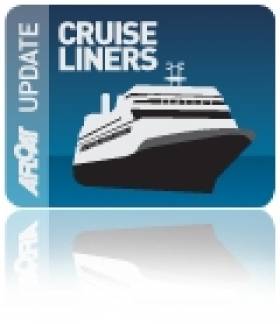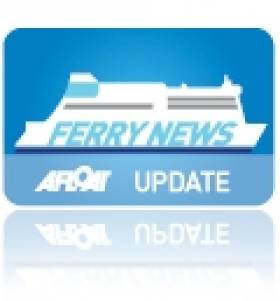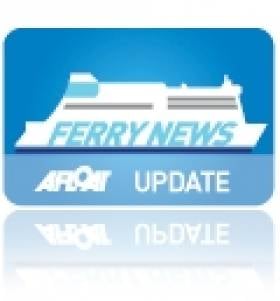Displaying items by tag: Irish Travel Industry Awards
Cruise Operator Finalists Announced for Irish Travel Industry Awards
#AwardFinalists - Finalists for the Irish Travel Agents Association's Industry Travel Awards 2015 have recently been announced for an award ceremony to be held next week.
The Irish Travel Industry Awards (ITAA), are the premier awards for suppliers and travel agents in Ireland. The awards are designed to showcase excellence in the delivery of international travel services to both leisure and business customers travelling from Ireland.
The Awards will commend a range of companies from air and sea transport companies, through tour operators, destination representatives and specialist service providers to the trade.
The Mansion House, Dublin, will be the venue for the award ceremony on Thursday January 22, when winners will be announced including those in the category from the Ferry & Cruise industry, sponsored by the Port of Cork.
Below are the following operators that have been nominated from three-sub-categories:
Best General Cruise Company
Celebrity Cruises, Fred Olsen Cruises, MSC Cruises, NCL, Royal Caribbean International
Best Ultra Luxury Cruise Company
Azamara Club Cruises, Celebrity Cruises, MSC Cruises – Yacht Club, Royal Caribbean International, Silversea Cruises
Best Specialist Cruise Company (including River)
AMA Waterways, MSC Cruises, Riviera Travel, Royal Caribbean International and also nominated is Uniworld
Best Ferry Company
Brittany Ferries, Irish Ferries, P & O Ferries, Stena Line
To view the list of all the other categories, click HERE.
Irish Ferries Voted Best Ferry Company for Fourth Year in a Row
#ferries – Irish Ferries has been voted Ireland's Best Ferry Company for the fourth year in succession at the Irish Travel Industry Awards held in Dublin recently.
The award was bestowed on the company by a vote of Irish travel agents and comes in the week when the company launched its new weekend direct return service between Dublin and the French port of Cherbourg.
Providing what the company's head of passenger sales Dermot Merrigan said is 'a third route option that augments the company's existing services from Rosslare to Cherbourg and Roscoff', the new 19-hours service is operated by the ferry vessel Epsilon departing Dublin every Saturday afternoon and arriving Cherbourg the following morning. Sailings return later each Sunday in time to arrive back in Ireland on Monday morning.
Irish Ferries Win Best Ferry Company
#FERRY NEWS- Irish Ferries has won the 'Best Ferry Company' award at the Irish Travel Agents Association travel industry awards held last night in the Mansion House, Dublin.
This was the thirteenth time that the award has gone to Irish Ferries since the event started two decades ago. The award which was presented on foot of votes cast by travel agents and their staff employed throughout the island of Ireland was accepted jointly by its head of passenger sales Declan Mescall and passenger sales manager Marie McCarthy.
Thanking travel agents for the honour their decision bestows on the company, Mr. Mescall said that the Best Ferry award reflects the high standard of service which passengers can now expect from Irish Ferries.
'In addition, it recognises the numerous developments that have taken place in the company in recent times, including the introduction of class leading advances in electronic communications, the most recent being the introduction of the industry's first bookable smart phone app which was launched just months ago' said Mr. Mescall.
The award follows Irish Ferries parent company Irish Continental Group (ICG) whose Dutch based container division Eucon Shipping and Transport was awarded Short Sea Shipping Company of the Year Award 2011, sponsored by the Irish Maritime Development Office (IMDO).
Eucon operate regular feeder services to Antwerp, Rotterdam and Southampton from the ports of Belfast, Dublin and Cork.



























































